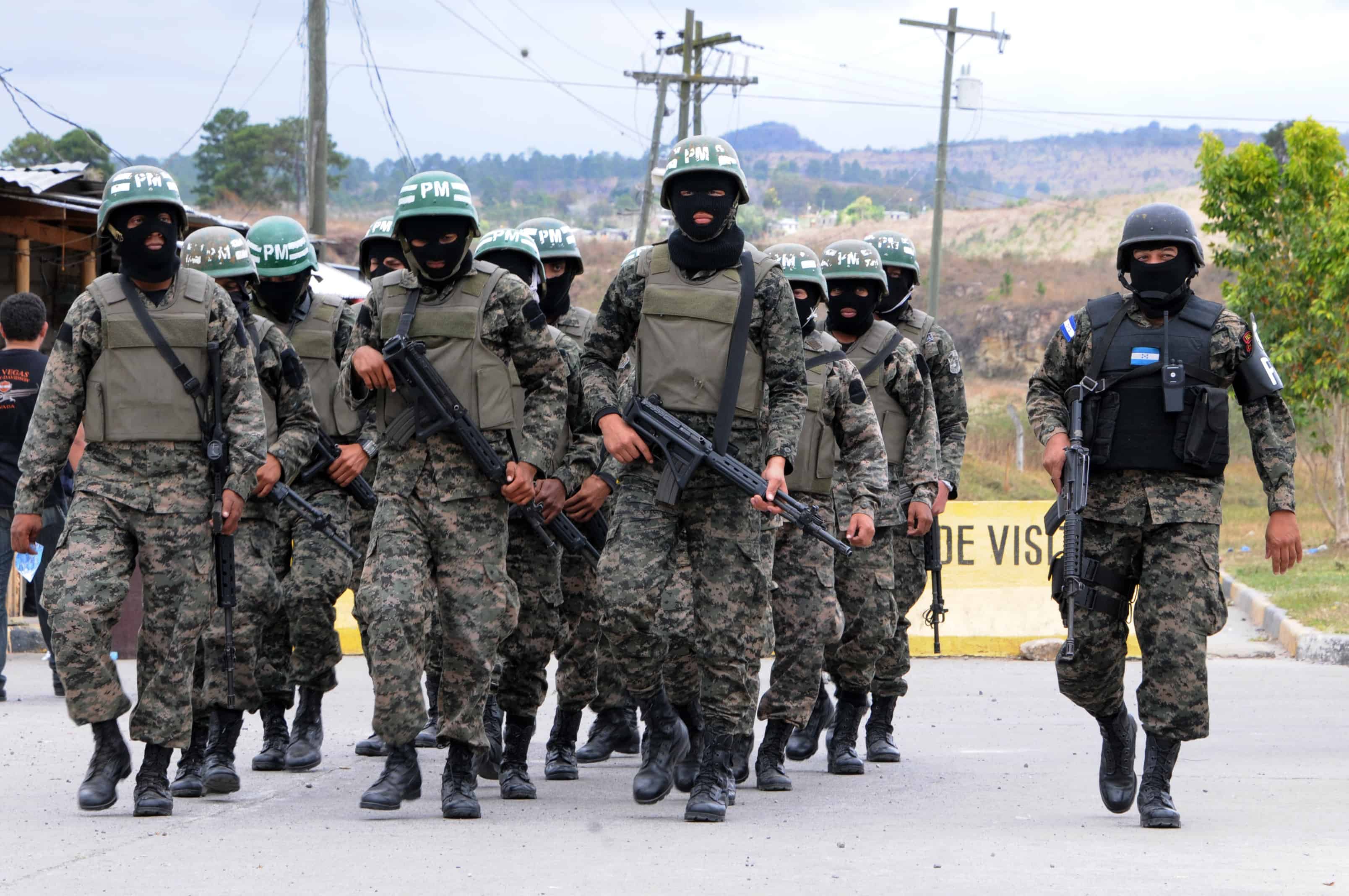TEGUCIGALPA, Honduras — The recent arrest of four members of the Honduran military police has stoked ongoing controversy surrounding the newly created force.
Last week, four members of the Honduran Public Order Military Police were arrested for attempting to kidnap the owner of a fruit shop in the country’s capital. At least three of the officers were assigned to the force’s intelligence unit.
The military police force, which was created in 2013, has faced resistance from some political leaders and civil society groups, while receiving staunch support from Honduran President Juan Orlando Hernández.
Honduran police captured the four officers accused of kidnapping the shop owner on Feb. 11 in a neighborhood of Comayagüela, which neighbors Tegucigalpa. The officers were traveling in an unmarked pickup truck with the victim, identified as Luis Portillo. A family member had reported his kidnapping some five minutes earlier.
According to local press reports, the alleged kidnappers had arrived at Portillo’s shop dressed as civilians and told the owner he was under arrest. They then took him away while the victim resisted.
Local press also reported that once inside the pickup, someone ordered the alleged kidnappers by phone to kill Portillo. But the officers told the shop owner they would not harm him if he gave them 120,000 lempiras ($5,700).
Meanwhile, Portillo’s brother-in-law was following the abductors, providing police authorities details of the route. Officers soon rescued the victim and arrested the kidnappers. Police also confiscated several weapons and bulletproof vests.
The officers are currently in custody awaiting trial.
Prior criminal record
According to local media, one of the four officers had an outstanding arrest warrant for robbery and illegal possession of weapons.
A top Honduran human rights official said the incident showed that organized crime had penetrated the government.
“We very much regret that, within the general problems the country is going through, in this exceptional situation of crisis and violence, we’ve been penetrated as a society and as a state by organized crime,” human rights ombudsman Roberto Herrera said.
Herrera said the alleged kidnapping highlighted the need to improve recruiting procedures for the country’s security forces. But he also said the prompt arrest of the accused showed that “the state apparatus is working.”
Gen. Fredy Díaz, who heads the Joint Chiefs of Staff of the Honduran Armed Forces, told reporters that the authorities in charge of checking recruits’ police records will have to answer for the case of the wanted officer, because the screening process “should not fail.”
“There are several officers … who are responsible for this, who will be held responsible once the judge says these people are guilty,” Díaz said.
Shortly after the alleged kidnapping, a lawyer for several of the officers, retired Col. Wilfredo Urtecho, denied that a kidnapping had taken place.
“If they’re intelligence, they dress as civilians, they can’t wear a uniform,” Urtecho said. “If they’re military police intelligence on duty, they have to be armed,” he added. He said the incident shouldn’t become a political issue.
Crime fighters or personal security force?
The Honduran military police was created by law in 2014 to fight organized crime and drug trafficking, and to improve citizen security in a country with one of the highest murder rates in the world.
The new force has come under fire from opposition politicians and some civilian groups. They say its creation has led to increasing militarization and human rights abuses, and that it does nothing to address corruption within the national police force. Some accuse the president of seeking to create a personal security force.
President Hernández, who has promised to fight crime with an iron fist, has consistently pushed to make the force permanent by writing it into the country’s constitution. He has thus far been unsuccessful because of congressional opposition.
On Jan. 24, Honduras’s National Congress rejected a bill that would have given the military police constitutional status. Later that evening, Hernández called for a popular referendum to decide the matter.
“I am not going to give up on my efforts to recover the Honduran people’s peace and tranquility,” he said.
The president has not commented publicly on the recent kidnapping allegedly committed by military police officers.
Related: Honduras brings homicide rate down








